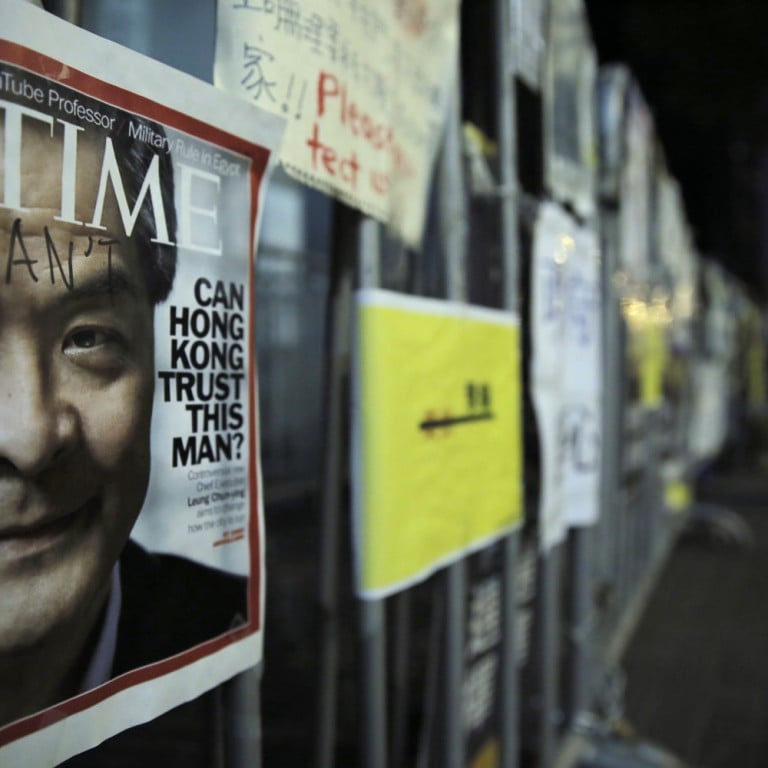
Leung lays bare the truth of Hong Kong elites' anti-democratic stance
Stephen Vines says the chief executive has exposed the lie of reform 'progress'
At last Chief Executive Leung Chun-ying has done something really useful. Everyone sort of knew what Hong Kong's elite really thought about democracy but now Leung has actually voiced these thoughts in public and said out loud that he does not like democracy and most certainly doesn't trust it.
Speaking to foreign media representatives, he said that if Hong Kong were to have full-scale democracy, then the polls would be determined by people who earn less than HK$14,000 per month and "you would end up with that kind of politics and policies".
To put this as bluntly as it deserves putting, Leung is saying that if there was anything like genuine democracy, instead of the current plans for a mutant democratic system, it would mean that the great unwashed would call the shots and end up supporting the kind of social welfare and pro-poor policies that the ruling elite have managed to keep at bay.
We can try and disentangle the flawed logic that lies behind these remarks later but, for the time being, let's focus on the cat that Leung has let out of the bag.
He is reminding us that it was neither accident nor oversight that produced the current plans for highly controlled universal suffrage.
Instead, it was a deliberate plan to ensure that Hong Kong-style democracy would be stripped of the essential element of allowing the people to choose their government.
Where does this leave the serried ranks of both well-meaning and not-so-well-meaning people who are urging us "to pocket" the current proposals, arguing that they are some sort of step forward?
The answer is now clear because, although the proposed system might well be capable of highly marginal trimming around the edges, its essential anti-democratic nature will, if Leung has anything to do with it, stay in place.
Some commentators are already seeking to minimise the damage wrought by Leung's remarks, trying to present it as some kind of public relations gaffe, but the reality is that Hong Kong's chief executive is quite capable of saying what he means and, more importantly, of parroting the thinking of the real bosses in Beijing.
So, let's have no more of this farcical bleating about how the constitutional reform proposals represent some kind of progress: they do not and are not designed to do so.
Meanwhile, let's consider the logic of Leung's remarks.
Clearly, he has never bothered to study the history of electoral politics, otherwise he would know that some of the most conservative voters in democratic systems are among the least well-off.
There is no such thing as an axiomatic relationship between poverty and so-called "social welfarism".
Yet he is not entirely wrong because a genuinely democratic system does exert pressure on the rulers to go beyond looking after the interests of the elite. The question, as ever, is how far and how soon?
Leung adequately reflects the contempt he has for the ordinary people of Hong Kong and fails to understand that in this community, largely composed of immigrants and the offspring of immigrants, the work and self-help ethic is very strong indeed.
The people he and his colleagues despise are pragmatic and sensible.
So why, then, does he believe that they would rush like sheep into an orgy of emptying the public coffers?
Yet there is a group that greatly fears any change in government spending and adjustment of policies that would drain their revenues and hit their privileged position.
There are no prizes for guessing who they are and for understanding the unholy alliance that exists between them and the rulers in Beijing.
But, for now, thank you Mr Leung for at least being honest.

